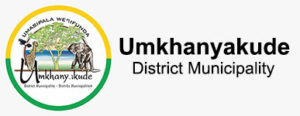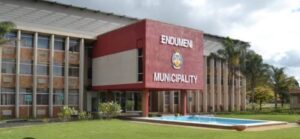KwaZulu-Natal’s (KZN) Department of Education budget should, by all accounts, be the most sacred of all budgets – one meant to secure the future of our children, restore the dignity of our educators, and advance the prosperity of our province. It is tabled under the collective mandate of the Government of Provincial Unity (GPU).
Yet, as we examine the 2025/2026 budget, we are not met with a compelling vision or a sense of urgency. Instead, we encounter a document that is more like a compliance exercise than a transformational plan.
Furthermore, the allegations emerging around the National School Nutrition Programme (NSNP) are deeply unsettling. They cast a shadow over a programme intended to feed KZN’s most vulnerable children. However, we must remain measured and responsible in our reactions. While the allegations are serious, they must be thoroughly investigated and proven before conclusions are drawn.
In this regard, it is also essential to recognise that many operational decisions and procurement processes are ultimately the responsibility of KZN DoE accounting officer, HOD Ngcobo. The administrative failings within this department are longstanding and systemic. Yet this moment must not be treated as one of one of scapegoating MEC, Sipho Hlomuka, but rather of comprehensive reform.
Government must also be proactive in dealing with any perception of impropriety. A well-functioning and ethical coalition must be willing to call itself to order. In KZN GPU’s quest to create a capable and ethical state, it must not protect individuals at the expense of public trust.
Section 195 of our Constitution speaks clearly of professional ethics, transparency, and the efficient use of resources in public administration. These values are not negotiable. The PFMA and Treasury Regulations – particularly Sections 38 and 45 – make it clear that accounting authorities and political heads carry the responsibility for ensuring that public funds are used appropriately.
Should evidence confirm that any official or political leader abused this trust, then the implicated person must account to Treasury and the Premier on the matter. Should these allegations be substantiated, then the Legislature will rightfully expect the Premier to act decisively to restore the credibility of the DoE.
But let us be clear: we are not at that point yet. Premature calls from the MK Party for the dismissal of MEC Sipho Hlomuka are nothing but political gimmicks to bluff the public into believing that the MKP is actually doing something about it. The MECs immediate removal would not only disrupt the DoE’s stability but also risk politicising a process that must remain rooted in facts and due process. That is the position of the DA. We trust that the investigation will have outcomes based on facts. We will use that report to chart a way forward and – should wrongdoing be found at any level – the GPU must deal with that person decisively.
The allegations emerged from external sources, leading the GPU to respond to the concerns of the people. Certainly, they did not emerge from opposition agitation. Had the MKP been in power, this information would never have seen the light of day. It has brought no credible policy, no meaningful oversight and no motion of consequence to the KZN Legislature. Instead, its role has been reduced to performance politics: slogans without solutions, rage without results.
KZN’s GPU members have chosen a different path. A difficult, sometimes uncomfortable path but one guided by accountability and constitutionalism. This is what ethical coalition governance looks like. MEC – my concerns, as public as the have been, are not personal they are in the interests of our collective mandate to create a capable and ethical state.
The DoE proposes an allocation of R66 billion for the 2025/26 financial year. Of this, an overwhelming 92% is committed to forms of Compensation of Employees (CoE). While the centrality of educators is undisputed, the lack of growth in key areas like Infrastructure, Inclusive Education and Skills Development is alarming.
KZN cannot sustain an education system where nearly all the budget is spent on salaries – without evidence of improved learning outcomes or better classroom conditions. KZN continues to suffer from overcrowded schools, decaying infrastructure and dropout rates nearing 50% between Grades 10 and 12. The DoE must answer why there is no visible urgency yet in tackling these issues.
While the Democratic Alliance (DA) remains concerned about the ongoing presence of ghost teachers we draw hope in Treasury’s reformative plan, led by MEC Francois Rodgers, to tackle this long-standing issue. The DoE’s lack of budget performance tracking, and refusal to implement zero-based budgeting simply block an approach that would compel every programme to justify its continued existence. Instead, year after year, outdated and inefficient baselines are simply rolled forward.
The DA again calls for the adoption of expenditure reviews similar to those in the Western Cape, where outputs are transparently tracked and quarterly performance audits are published. Here in KZN, it remains far too easy to spend without scrutiny and that must change.
We note a modest increase in funding for school safety but without a comprehensive, province-wide safety audit – including fencing, security staffing and surveillance – this increase risks being cosmetic. The safety crisis in rural and township schools is growing and it requires data-led interventions, not ad-hoc spending.
The continued stagnation of the DoE’s Digital Transformation Strategy is also concerning. Our classrooms remain disconnected. There are no tablets, no smart boards and no large-scale ICT training for teachers. Promises have been made for years, yet delivery has not followed.
I have had constructive engagements with Minister Gwarube on this issue, and she agrees: without a firm and modern baseline, education reforms cannot take root. This is why the DA supports the establishment of the National Education and Training Council (NETC), tasked with:
• Reviewing learner progression and pass requirements
• Improving curriculum delivery, particularly in Quintile 1–3 schools
• Advancing foundational literacy and digital skills and;
• Aligning schooling with future job market needs.
R66billion is not a small budget – it is a national responsibility. And we must treat it as such. Oversight remains a non-negotiable. In the words of the DA’s founding leader, Helen Suzman; We must go out and see, report back and deliver to our people.
The DA is not opposing this budget for the sake of spectacle, like our opposition colleagues across the floor. We support it to the extent that it delivers on its constitutional obligations. But we place on record our deep concern with the current KZN DoE political and administrative leadership and urge all stakeholders to restore trust by expediting processes that are ongoing.
The DA is not here to rubber stamp questionable appointments such as that of the Chief Financial Officer (CFO), bad policy and misappropriation. Should wrong doing be found we will support calls for dismissals and removals. We are watching. The public is watching. Most importantly—our learners are watching.
This budget presents two competing narratives. One, of a department drifting – burdened by scandal and inertia. And another, of a province choosing a new path – one of reform, reflection and renewal. The GPU must choose. And choose boldly.
The DA chooses ethical governance. The DA chooses capable leadership. And above all, the DA chooses the children of our province.








